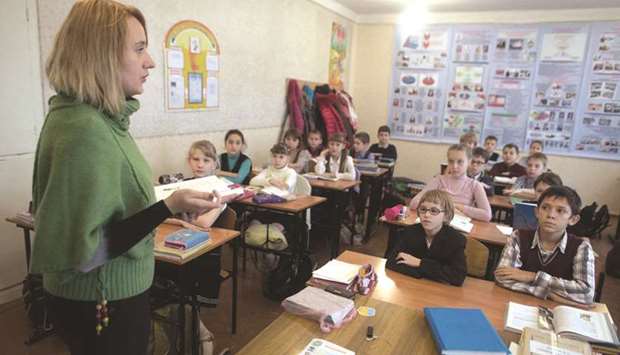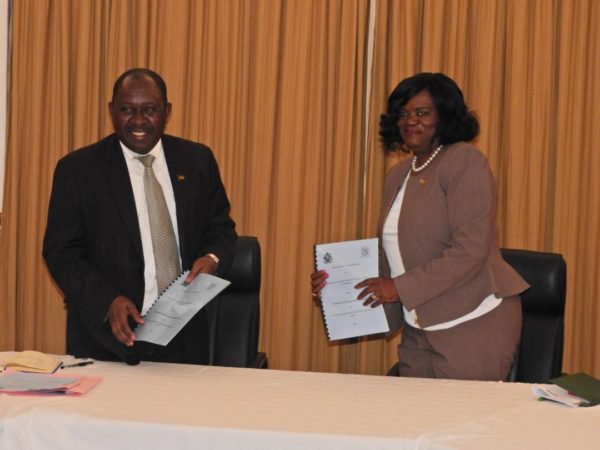An inclusive Ukrainian education

Education is one of the few areas nowadays that is still considered a purely sovereign matter, an issue over which national governments – and, in many countries, even local authorities – should have control. But, in today’s world, it seems that no issue is immune to political manipulation. That is the case with Ukraine’s new framework law on education, which has become the target of harsh opposition not so much from within the country, but rather from some neighbouring countries.
The law, adopted last month by Ukraine’s parliament, reflected a long and inclusive policymaking process. Among its provisions is Article 7, which specifies that students in schools and universities should study in the national language. Article 7 seems to be in accord with European norms. Perhaps more important, it will benefit all Ukrainian citizens, including minority-language speakers, who will be better equipped to integrate fully into Ukrainian society.
Under the previous education system, some students would receive their entire 11 years of schooling (to be raised to 12 under the new law) in a minority language, mostly Russian, but sometimes Hungarian and Romanian. About 400,000 students are currently on such a track, which has usually ended with students graduating high school lacking even a working knowledge of Ukrainian – the language in which the country conducts its business.
In fact, just this year, more than half of all graduates of Hungarian-language schools failed tests of Ukrainian. Unable to attend a Ukrainian university, these students have little choice but to find local work in Hungarian that requires only a secondary-school education, or move to Hungary.
The education reform will change this. From 2020, after a three-year transitional period, a minority language can be used as the main teaching language only in kindergarten and elementary school, from which point (after the fourth year of school) most instruction should be in Ukrainian. Some schools for indigenous people, such as Crimean Tartars, will be allowed to keep the old system, but for the most part, graduates of Ukrainian high schools will, under the new system, be adept in the Ukrainian language.
This change will help to eliminate de facto segregation of minority-language speakers, thereby unifying Ukrainian society – critical to a strong and vibrant democracy. It will also equip all students, including ethnic and linguistic minorities, not just to thrive in the labour market, but also to participate more fully in Ukrainian democracy, potentially securing government positions that enable them to advance further the interests of their fellow ethnic minorities.
It should also be noted that, while the rule will lead to less minority-language instruction, it does not preclude it. Education in minority languages will be provided through separate classes and groups, with some programmes allowing for instruction in multiple languages. For example, if a Hungarian speaker were studying Hungarian literature, they would be able to do so in their native tongue.
All in all, the case for Ukraine’s new education law could not be stronger. Yet neighbouring countries are deliberately distorting the legislation’s significance, claiming that it is somehow a threat to ethnic minority groups. And they are prepared to punish Ukraine for it.
Hungarian Foreign Minister Peter Szijjarto has declared that, if the law is not changed, his country will block further Ukrainian integration into Europe. “We can guarantee that all this will be painful for Ukraine in future,” he added. Szijjarto, along with his counterparts from Romania, Bulgaria, and Greece, also voiced opposition to the Council of Europe and the Organisation for Security and Co-operation in Europe.
Moreover, Romania’s president cancelled a visit to Ukraine scheduled for this month, and withdrew an invitation for the speaker of Ukraine’s parliament to visit Bucharest. And, perhaps most ominous, Russian Foreign Minister Sergei Lavrov accused Ukraine of trying to “Ukrainise” the education system, in violation of the country’s constitution and international agreements.
Beyond being a gross misrepresentation, this approach is blatantly hypocritical, as the countries that are complaining about Ukraine’s new language rules have similar systems in place. Though Hungary is home to some 8,000 Ukrainians, there is not a single Ukrainian-language school in the country. The same is true for Russia, with its Ukrainian minority of over 2mn. In Romania, with its roughly 50,000 Ukrainians, there is only one Ukrainian-language school.
Read More: http://snip.ly/6iem1#http://www.gulf-times.com/story/566224/An-inclusive-Ukrainian-education
Labels: HR audits and HR audit techniques, HR management processes and practices course, hr practices seminars online, understanding HR Audit Model

